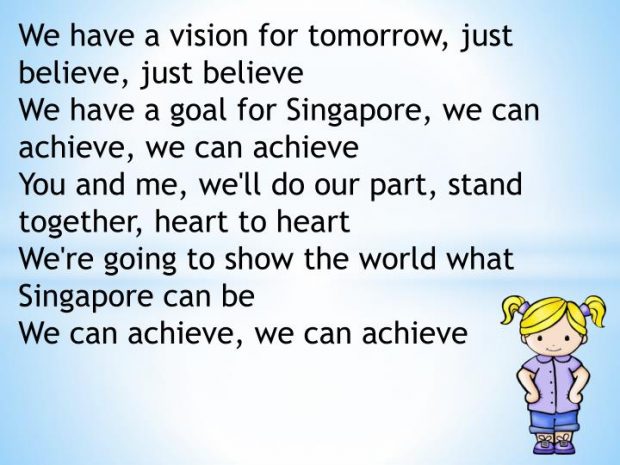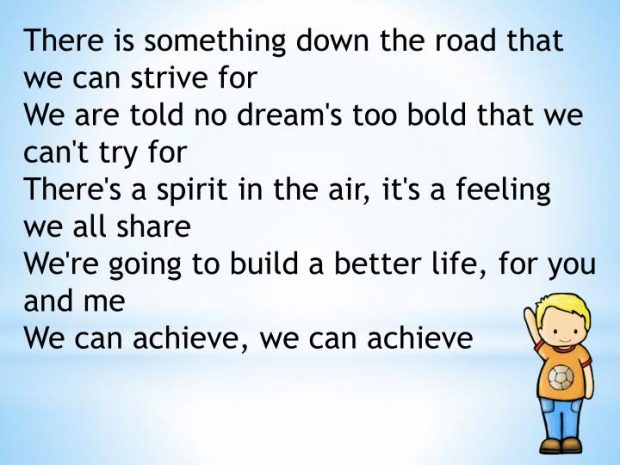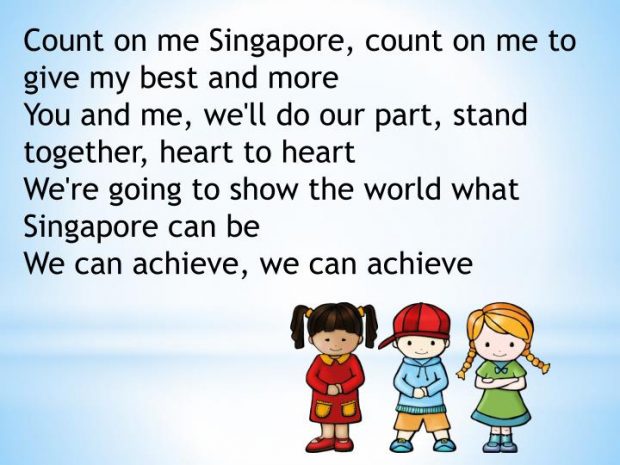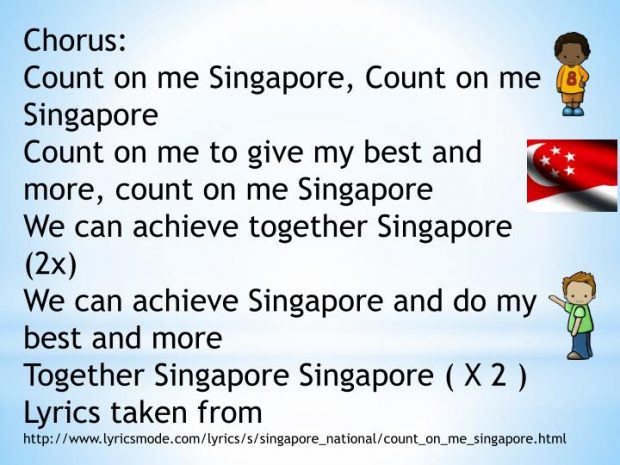
Apology ends row over purloined Singapore’s National Day song

By Ivan Li
Former AJA President, Contributor to AsiaN
SINGAPORE: A 1986 National Day song of Singapore found an echo in India, showing once again that emulation is a form of flattery, but plagiarising the tune had created discord.
The catchy “Count on Me, Singapore” was rejigged as “We Can Achieve” in an Indian version with the identical music score and lyrics, except that the reference to Singapore was quietly changed to India.
The rejig began to stir a controversy when Indian composer Joseph Mendoza claimed he had written the lyrics and music of “We Can Achieve” in 1983 – three years before “Count On Me, Singapore” was composed by Mr Hugh Harrison, a Canadian at the McCann Erickson advertising agency in Singapore.

Mr Mendoza’s account was contradicted by Mr Harrison. “Implying I copied the song from him is a direct attack on my integrity and professionalism,” he said.
“For that he could be sued for slander and/or libel.’’
Mr Harrison also wrote to Mr Mendoza to ask him to rescind his claim.
This set the stage for a full-blown copyright row.
When approached by the media for proof, Mr Mendoza claimed the original tapes of his composition were lost during floods in Mumbai in 2005.
“The only living proof I can offer you are the 250 orphans who first learnt it in 1983,” said the 58-year-old who had taught music at the Bal Bhavan orphanage.
He had then sold the rights to the song to a Christian book and record store, Pauline India, and recorded it in 1999. “We can Achieve” was included in a CD of Inspirational Songs for Children and All.
The videos of Indian students singing the song on You Tube set off a buzz among Singaporeans who wondered how there could be these ‘twin’ songs.

The brewing dispute that may impact Singapore-India relations led the Ministry of Culture, Community and Youth (MCCY) to step in. As a copyright owner of the song, together with Mr Harrison, the ministry said it was “puzzled” by Mendoza’s claim and asked him to “substantiate his claims.”
It conducted due checks in India and found “no evidence or records whatsoever of Mr Mendoza having any rights to ‘We Can Achieve’ from 1983 or anytime thereafter.”
It noted in its Facebook post that Pauline India has since publicly acknowledged that ‘We Can Achieve’ “appears to have been substantially copied from ‘Count On Me, Singapore'”.
The recording firm also said it was unaware that “Count On Me, Singapore” had been Singapore’s national song since 1986. It apologised and agreed to remove the song from its platforms.
MCCY had also relied on the testimony of Mr Jeremy Monteiro, a home-grown composer of other national day songs like “Stand Up For Singapore” (1984) and “We Are Singapore” (1987).

On the “Count On Me, Singapore” song, the 60-year-old jazz maestro said: “As Hugh Harrison was writing the song, I was sitting right next to him. He is a lyricist and melodicist, and so I was there attaching the harmonies, almost in real time, to everything he composed in terms of lyrics and melody.’’.
The Composers and Authors Society of Singapore (Compass) has also weighed in on the copyright saga.
“We are supportive of MCCY’s probe into the matter to seek clarity, and also for Mr Mendoza to provide proof of his work as claimed,” said Ms Caroline Heng, its manager for memberships and public relations.

Pressed by the MCCY, Mr Mendoza finally backed down. According to MCCY, he has “unconditionally and irrevocably” withdrawn any claims to ‘Count on Me, Singapore’”.
He has also instructed social media platforms to remove renditions of its Indian version, “We Can Achieve.”
And in a bow to Harrison, the Indian composer said “he has no intention of attacking the integrity or professionalism of Mr Hugh Harrison”.


